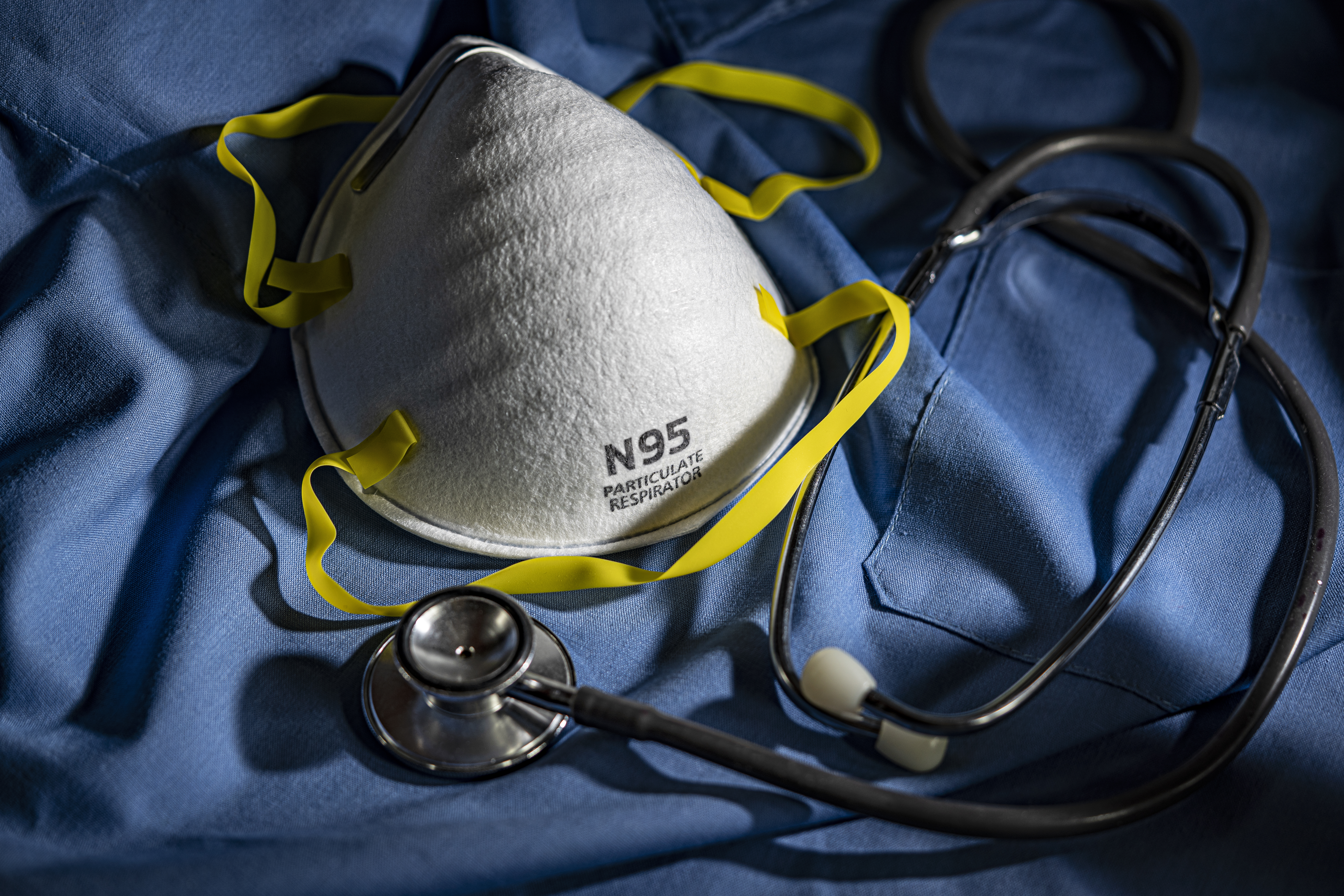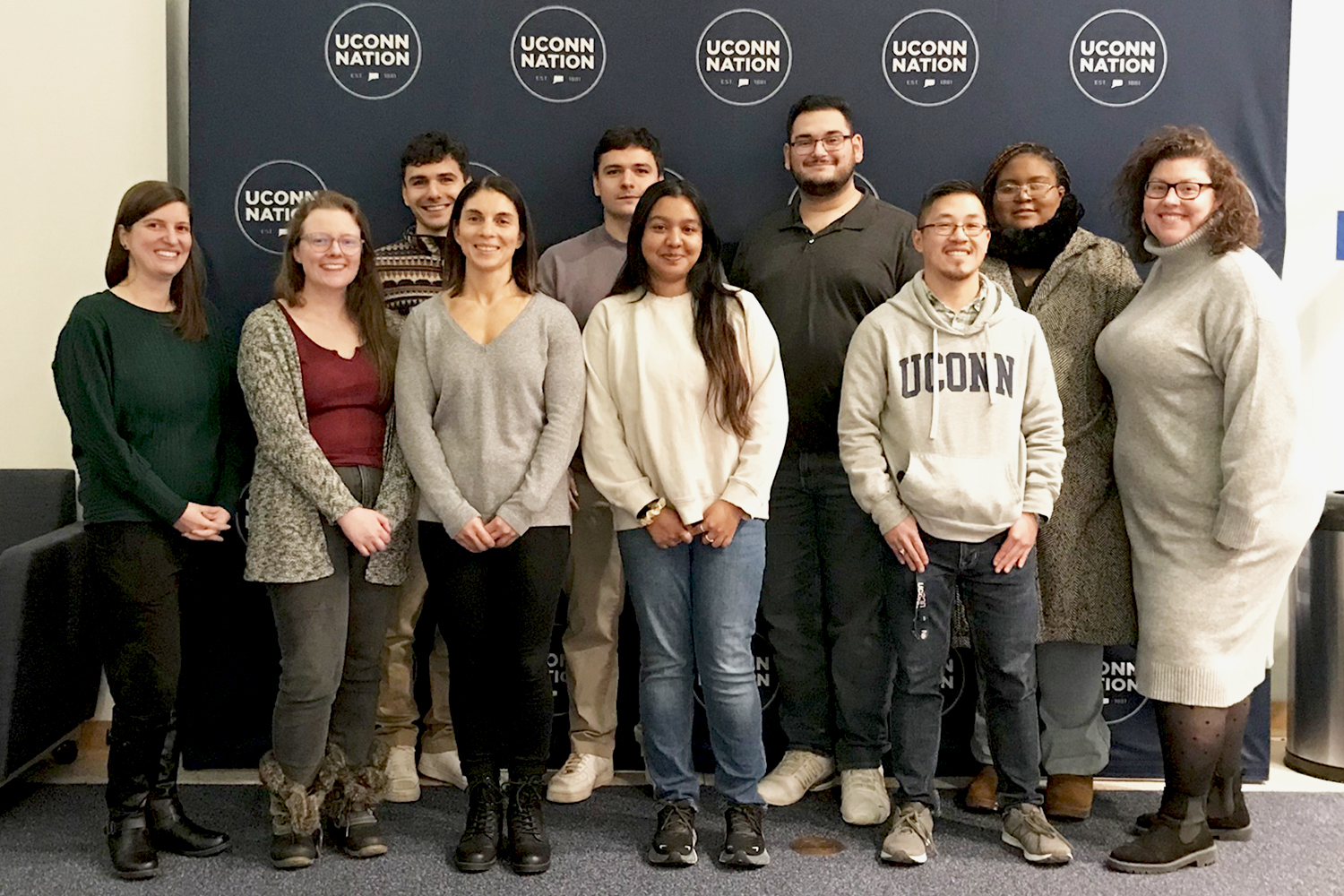On paper, Molly Higgins and Kelsey Rynkiewicz may not seem that similar: Higgins is a registered nurse at Massachusetts General Hospital, while Rynkiewicz is an athletic trainer at Eastern Connecticut State University.
But both women are students in the UConn School of Nursing’s Healthcare Innovation Online Graduate Certificate program and are prototyping ideas that could solve issues at their workplaces brought to light by the COVID-19 pandemic.
“Historically, health care has been resistant to change,” says Tiffany Kelley, the director of the program and the DeLuca Foundation Visiting Professor for Innovations and New Knowledge in Nursing. “However, due to the COVID-19 pandemic, we as an industry needed to be willing and able to change to keep people as safe as possible while continuing to deliver high quality care.”
Rynkiewicz works with varsity-level athletes, helping to evaluate, diagnose, and rehabilitate injuries and illnesses. When COVID-19 first reached Connecticut back in March, she was forced to work remotely just like many other professionals. That’s when a glaring issue with their workflow came to light – each athlete’s rehabilitation regimen was in the athletic training facility written out on a piece of paper, which listed the exercises they were supposed to do and how often.

“At the time, it drove me nuts!” recalls Rynkiewicz, who has master’s degrees in kinesiology and health care administration and is also a third-year Ph.D. student in the College of Agriculture, Health, and Natural Resources’ Department of Kinesiology. “When COVID hit, we had to take pictures of the sheets of paper and send it to the athletes so they could do their exercises at home.”
Her coursework in the Healthcare Innovation Online Graduate Certificate program helped her think of an idea to solve this inefficiency – an app.
“It would be so much easier if there was some kind of application where we can put in the exercises, supply videos of the exercises, talk with the athlete, or even video chat with the athlete – all in one place,” Rynkiewicz says.
While she has a long way to go to create such an app, Rynkiewicz says she wouldn’t have been able to take her idea even this far without the skills and processes she has learned in her Healthcare Innovation classes.
“I took the opportunity to incorporate emerging innovative solutions into the course each week to bring innovation to life for the class,” Kelley says. “I wanted the students to see the emerging needs due to COVID-19, how health care professionals were responding to those needs, and most importantly, that it was possible to do things differently in health care.”
“As athletic trainers, we’re always innovating and being creative and trying to come up with new ways of doing things,” Rynkiewicz says. “A lot of things we’ve talked about in our classes have really made me think, ‘wow I could be doing so much of this at work, applying it in this way or that way.’ There are so many things I’ve looked at differently because of that.”
Higgins is no stranger to implementing innovation at work either.

When COVID-19 began to surge in the spring, she was able to leverage her Grab-a-Lab prototype, an innovation she began working on after she was awarded an IDEA grant at Massachusetts General Hospital in 2018.
The hospital’s Innovation Team thought her idea would help with specimen collection during the pandemic and had 50 “Grab-a-Lab” prototypes made. With the prototypes, lab bags do not enter patients’ rooms; nurses can take samples from patients and place them into the Grab-a-Lab in a way that is more efficient and prevents the bag from becoming contaminated.
“I’m so glad I started the Healthcare Innovation Program when I did,” Higgins says. “Shortly after the start of the program, the pandemic happened, and the importance of my invention surged. It’s perfect timing to be learning more about innovation as my prototype’s reach is expanding.”
But she didn’t stop there. Higgins is also now developing a prototype to help decrease patient isolation and increase family connections during the pandemic.
Working on the bone marrow transplant unit for the past 13 years, Higgins has witnessed many times when patients and families can’t be together, and how difficult this is for both parties.
“Even though the idea came as a result of COVID-19, it’s a problem anyway,” she says. “COVID-19 has exacerbated patient isolation through very strict visitor policies, or at certain times, a no-visitor policy. It is very important that we keep patients and families connected as much as possible.”
In a way, she says, that may be the silver lining of the pandemic: industries learning how they can be more efficient and better serve others.
“COVID-19 certainly has sparked a lot of creative ways to do things,” Higgins says. “It just shows how the process of innovation is so important and how we need to pivot and do what’s best for patients.”
The Healthcare Innovation Online Graduate Certificate program is teaching Higgins, Rynkiewicz, and other UConn students like them how to do just that.
“This program has created a roadmap of how to take an idea through the process of innovation, in a step-by-step process,” Higgins says. “I’ve also learned the importance of understanding that there are no setbacks, just learning opportunities. You just have to keep moving forward.”
“It’s something we all need to be doing,” Rynkiewicz says. “Regardless of what industry you’re in, there is a need or a reason that you can innovate. Even if you don’t realize you’re doing it, you probably are, and this program gives you the tools.”
Learn more about the Healthcare Innovation Online Graduate Certificate program at healthcareinnovation.online.uconn.edu.
Follow the UConn School of Nursing on Facebook, Instagram, Twitter, or LinkedIn.



